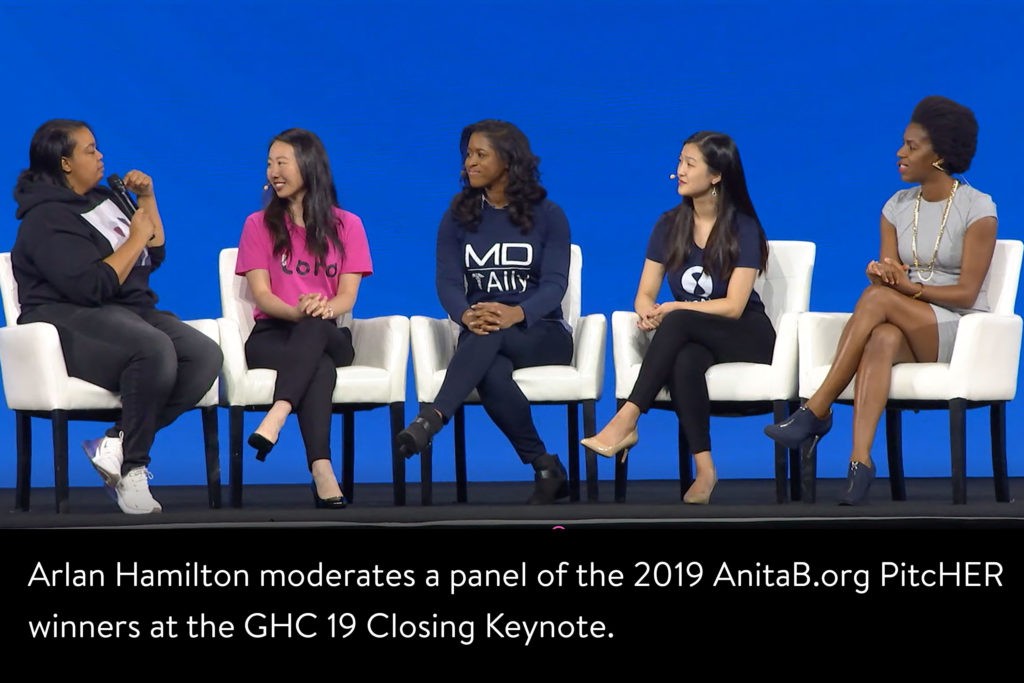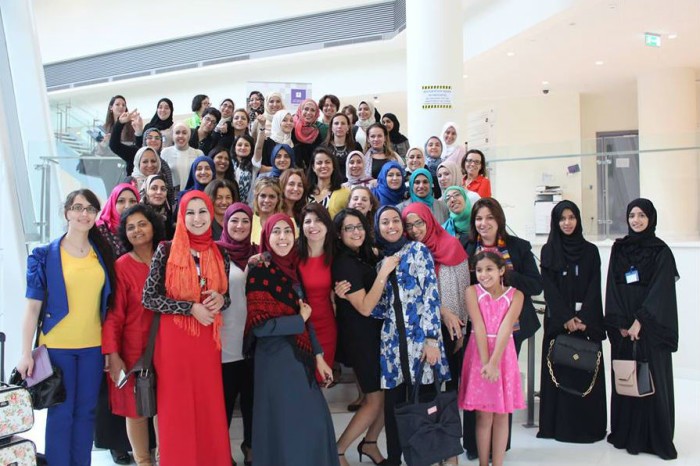How Arab Women in Technology Inspire Global Diversity in Tech

How Arab Women in Technology Inspire Global Diversity in Tech
Arab Women in Computing (ArabWIC) is an official chapter of ABI’s Systers dedicated to supporting Arab women in technology and connecting them with women technologists across the globe. We spoke with Professor Sana Odeh, founder and chair of ArabWIC, and Dr. Kaoutar El-Maghraoui, co-chair of ArabWIC, to discuss how the group has grown and how the experiences of women in tech in Arab countries compare to the rest of the world.
What inspired you to create this group for the women in technology community in the Arab world?
Sana: Six years ago, NYU created a university in Abu Dhabi (NYUAD) and I went to set up the computer science department at NYUAD. I worked on developing the curriculum for NYUAD, hiring new faculty and developing new international and regional collaboration and projects. In New York, everyone talked about the lack of women in computing classes, but when I came to the Arab world, I was pleasantly surprised to see that female enrollment in CS fields is actually high. In many cases, women made up either half or the majority of university CS and IT related fields classes.
After women graduate from universities, however, the situation changes. Women often face discrimination and are not hired in their field. As a result, these women start their own businesses and become entrepreneurs. Inspired by the growing number of women technologists in the Arab world, we decided to start ArabWIC.
How does the experience of women in technology in the Arab world compare to what women in tech face in the U.S.?
Kaoutar: When I was growing up in Morocco, I never felt that we were a minority in schools. Many women pursued computer science and engineering. I received a bachelor’s in General Engineering and a master’s in Computer Networking. But when I came to the U.S. to get my Ph.D., it hit me: very few women were pursuing a computer science graduate degree. Unfortunately, we still continue to see this trend.
Sana: People in the Arab world sometimes can’t believe the stories [from the U.S.]. When you say, “Men are the majority in the U.S. tech field,” they’re astonished because women are the majority in tech fields in universities and are also prominent in the tech eco system leading incubators, competitions and venture capital firms. If you go to a conference like ArabNet, you’ll see that half of the conference is women and many of the speakers are women, and they’re all collaborating and are all empowered.
How has ArabWIC grown, and what is it doing today to promote women in technology in the Arab world?
Sana: Our organization now has chapters in 17 Arab countries. We have almost 2,000 women, 200 leaders around the Arab world from all technology sectors (academics, students, industry and entrepreneurs), and we have held three international conferences on Arab Women in Computing sponsored by NYUAD in Abu Dhabi. We have provided scholarships for 7 women to attend GHC for the past several years which are funded by the QRC and in partnership with ABI. We also plan hackathons and technical events to support tech women in various Arab countries such as Sudan, Oman, UAE, Saudi Arabia, Palestine, Jordan, Lebanon, Tunisia, Algeria, and Morocco. We recently held two successful Hackathons and a training workshop in Lebanon along with other prominent organizations where 500 high school girls learned engineering and how to use apps. ArabWIC also went into schools in Qatar and showed children how to code for the first time.
We also held an international mentoring event in Morocco sponsored by GE, networking technical events in Palestine, Saudi Arabia, Jordan, Oman and Sudan and an international conference on Arab women in computing in Algeria for the first time. Almost every day now, we have an activity in a different Arab country. We are open to collaborating with international or regional tech organizations and we welcome tech women from all over the world to join us and to participate by mentoring Arab women or leading a webinar or other projects.
Kaoutar: We also hold technical webinars where members from all over the world can participate by giving technical talks or by mentoring other participants. We connect women from all over the world — members and nonmembers alike. We have successfully matched several mentors with mentees globally based on a matchmaking process that our mentoring committee, led by Diane Jordan, has successfully implemented.
How did ArabWIC get involved with ABI?
Sana: While establishing ArabWIC, I went to the Grace Hopper Celebration (GHC) as a way to meet people and get them involved. That’s how I met Kaoutar and many other wonderful women who are now involved with ArabWIC. I also met women from AnitaB.org such as Telle Whitney, Jody Mahoney and Rosario Robinson. Kaoutar and I were determined to connect ArabWIC to Systers and AnitaB.org because we knew what valuable resources they’d be for us.
AnitaB.org has been a great support. During last year’s GHC, for example, we had a reception where about 180 Arab women came to meet and learn more about us. AnitaB.org allowed us to grow and to reach more people. I really commend AnitaB.org for reaching out to international communities. The collaboration of organizations is extremely important. We look forward to future collaborations and for a global technical leadership to grow even more, to collaborate on a new level where we don’t reinvent each other work but help grow our work and our movement to support women globally.
Kaoutar: I would like also to add that many ArabWIC members have been actively supporting and volunteering for AnitaB.org and the GHC conference. Several members have been part of the program committee of GHC helping shape the program of the largest technical women in computing conference through co-chairing tracks and helping review GHC submissions. For instance, I have had the honor to serve as the GHC program co-chair in 2015 and as the general co-chair for GHC in 2016.

